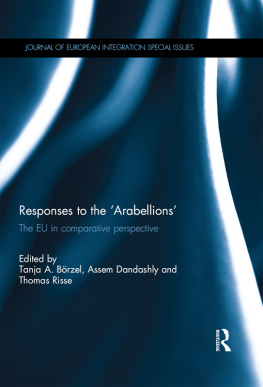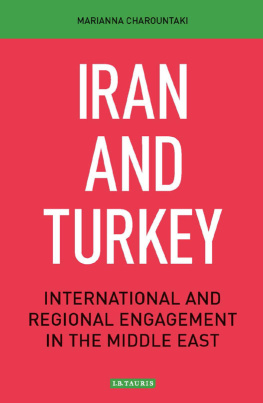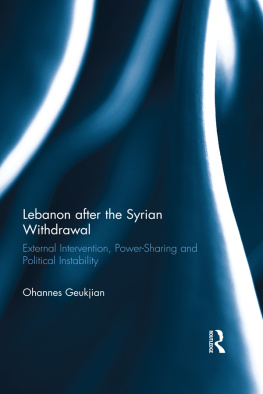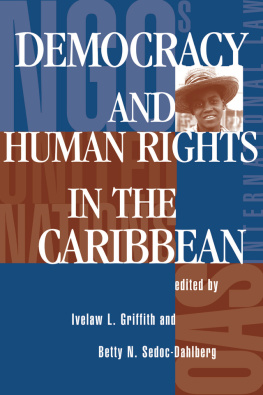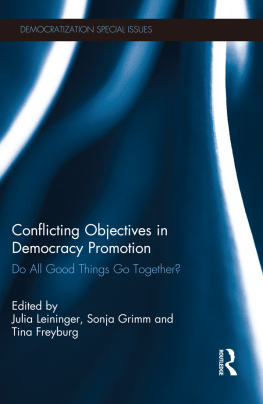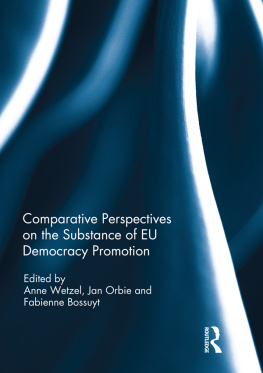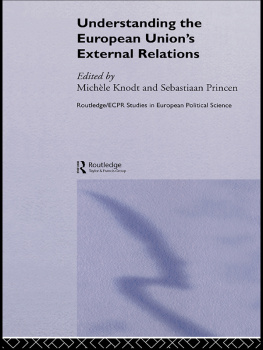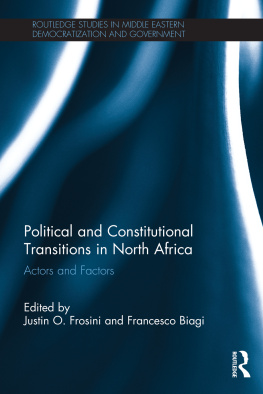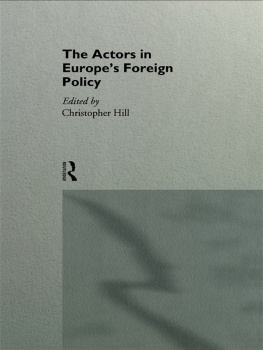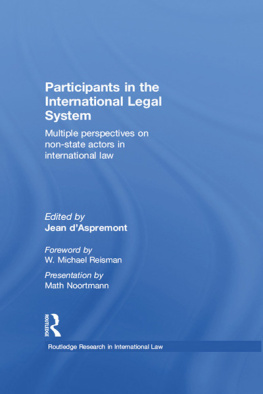Responses to the Arabellions
This book studies the reactions by external actors, including the European Union, to the events unfolding in the Arab world beginning in December 2010. In particular, contributors look at external actors attempts to balance their desire for stability with their normative principles toward human rights and democracy. The book compares the action (and inaction) of the EU with other international and regional players, including the United States, Russia, Turkey and Israel, and assesses the response of these actors to the Arabellions events, analysing changes in their approaches to the Arab region.
The contributions to this book answer three questions: (1) How have external actors assessed the Arabellions and what role did they see for themselves in this context? (2) Which goals and instruments did external actors pursue toward the MENA region? In particular, how did they deal with conflicting goals, such as support for human rights and democracy, on the one hand, and concerns about security and stability, on the other? (3) How can we explain the varying responses of external actors to the Arabellions?
This book was published as a special issue of the Journal of European Integration.
Tanja A. Brzel is Professor of Political Science and holds the Chair for European Integration at the Otto-Suhr-Institute of Political Science, Freie Universitt Berlin, Germany. She is co-coordinator of the Research College The Transformative Power of Europe, and directs the Jean Monnet Center of Excellence Europe and its Citizens.
Assem Dandashly is a Lecturer in European Public Policy in the Department of Political Science at Maastricht University, The Netherlands. Prior to that, he was a Research Fellow at the Kolleg-Forschergruppe The Transformative Power of Europe, Freie Universitt Berlin, Germany. He holds a PhD in Political Science (2012) from the University of Victoria, British Columbia, Canada.
Thomas Risse is Professor of International Politics at the Otto-Suhr-Institute for Political Science, Freie Universitt Berlin, Germany, where he is co-coordinator of the Research College The Transformative Power of Europe, and coordinator of the Collaborative Research Center Governance in Areas of Limited Statehood.
Journal of European Integration Special Issues
Series editors:
Thomas Christiansen, Maastricht University, The Netherlands
Simon Duke, European Institute of Public Administration, The Netherlands
The Journal of European Integration book series is designed to make our Special Issues accessible to a wider audience. All of the themes covered by our Special Issues and the series are carefully selected with regard to the topicality of the questions addressed in the individual volumes, as well as to the quality of the contributions. The result is a series of books that are sufficiently short to appeal to the curious reader, but that also offer ample depth of analysis to appeal to the more specialist reader, with contributions from leading academics.
Responses to the Arabellions
The EU in comparative perspective Edited by Tanja Brzel, Assem Dandashly and Thomas Risse
Representation and Democracy in the EU
Does one come at the expense of the other?
Edited by Richard Bellamy and Sandra Krger
Coping with Crisis: Europes Challenges and Strategies
Edited by Jale Tosun, Anne Wetzel and Galina Zapyanova
Globalization and EU Competition Policy
Edited by Umut Aydin and Kenneth Thomas
Redefining European Economic Governance
Edited by Michele Chang, Georg Menz and Mitchell P. Smith
PREVIOUSLY PUBLISHED BOOKS FROM THE JOURNAL
The Maastricht Treaty: Second Thoughts after 20 Years
Edited by Thomas Christiansen and Simon Duke
Europe after Enlargement
Edited by Yannis Stivachtis and Mark Webber
Euroscepticism within the EU Institutions
Diverging Views of Europe Edited by Nathalie Brack and Olivier Costa
The Performance of the EU in International Institutions
Edited by Thomas Oberthr, Knud Erik Jrgensen and Jamal Shahin
Functional and Territorial Interest Representation in the EU
Edited by Michle Knodt, Christine Quittkat and Justin Greenwood
European Neighbourhood through Civil Society Networks?
Policies, Practices and Perceptions Edited by James Wesley Scott and Ilkka Likanen
European Parliament Elections after Eastern Enlargement
Edited by Hermann Schmidt
The Common Agricultural Policy
Policy Dynamics in a Changing Context Edited by Grace Skogstad and Amy Verdun
The External Dimension of Justice and Home Affairs
A Different Security Agenda for the European Union?
Edited by Sarah Wolff, Nicole Wichmann and Gregory Mounier
Policy Coherence and EU Development Policy
Edited by Maurizio Carbonne
The Future of European Foreign Policy
Edited by Erik Jones and Saskia van Genugten
The EU as a Global Player
The Politics of Interregionalism Edited by Fredrick Soderbaum and Luk Van Langenhove
First published 2016
by Routledge
2 Park Square, Milton Park, Abingdon, Oxon, OX14 4RN, UK
and by Routledge
711 Third Avenue, New York, NY 10017, USA
Routledge is an imprint of the Taylor & Francis Group, an informa business
2016 Taylor & Francis
All rights reserved. No part of this book may be reprinted or reproduced or utilised in any form or by any electronic, mechanical, or other means, now known or hereafter invented, including photocopying and recording, or in any information storage or retrieval system, without permission in writing from the publishers.
Trademark notice: Product or corporate names may be trademarks or registered trademarks, and are used only for identification and explanation without intent to infringe.
British Library Cataloguing in Publication Data
A catalogue record for this book is available from the British Library
ISBN 13: 978-1-138-93357-6
Typeset in Sabon
by RefineCatch Limited, Bungay, Suffolk
Publishers Note
The publisher accepts responsibility for any inconsistencies that may have arisen during the conversion of this book from journal articles to book chapters, namely the possible inclusion of journal terminology.
Disclaimer
Every effort has been made to contact copyright holders for their permission to reprint material in this book. The publishers would be grateful to hear from any copyright holder who is not here acknowledged and will undertake to rectify any errors or omissions in future editions of this book.

